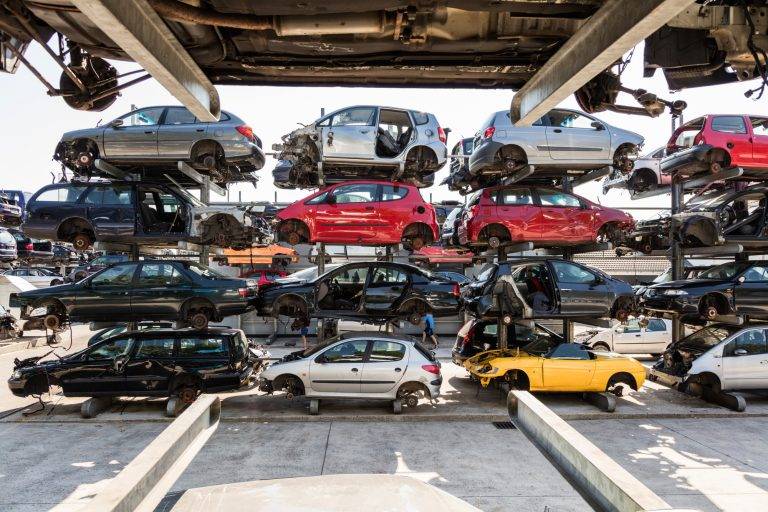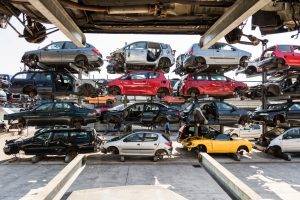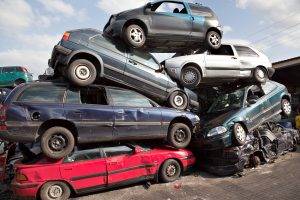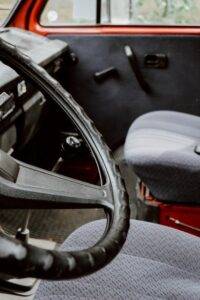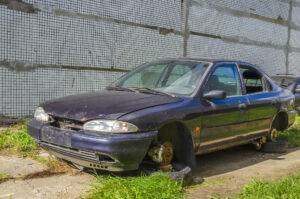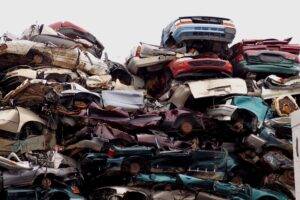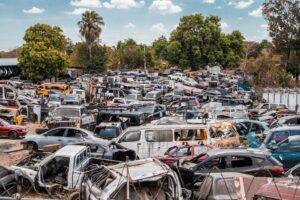Are you struggling to sell your old or damaged car? Did you know that the used car business in the UK is thriving? In the second quarter of 2021 alone, used car transactions went up by 108.6%.
Over 2,167,504 used units were sold.
Whether your vehicle needs extensive repair, is a write-off, or you just want to upgrade to a better one and you want to sell it fast, we have the best tips for you.
With auto salvage, you can sell any old, wrecked, and end-of-life vehicle and help reduce landfills and make some money while at it. Here is your complete guide to car salvage.
What is Auto Salvage?
The automobile manufacturing and repair industry is one of the largest industries in the world. While this industry contributes hugely to the global economy, it also creates a lot of waste.
To promote an eco-friendly environment, the manufacturing industry aims at creating clean and eco-friendly vehicles.
On the other hand, the auto salvage industry works to properly dispose of and recycle vehicles to reduce landfills. Auto salvage is the action of taking wrecked, used, junk, or unwanted vehicles and removing all their usable components and parts.
The parts are then sold, refurbished, or recycled, and can be used on other vehicles. Salvage vehicles are mainly taken off the road after a mechanical problem or a severe accident.
These vehicles are mostly bought by people who work with junkyards, salvage facilities, or cash for cars companies.
Why Are Vehicles Salvaged?
Several factors determine whether you should repair or salvage a car. Not all vehicles that have been in a crash are candidates for salvage.
Mechanics, insurance adjusters, and any other analyst strike a balance between the costs of total loss and repair to make a decision.
Some of the reason why a vehicle is salvaged includes:
• Major accidents
• Natural disasters
• Kit cars or IKEA version of vehicles
• Antique vehicles
• Stolen vehicles
• Vehicles with aftermarket parts
If you want to sell a perfectly working vehicle, selling it as salvage may not be your best bet. This is because salvage cars are mainly inoperable and appraised as such.
Salvage works for a vehicle that is not worth saving or one that might cost so much more to fix than when sold as salvage.
How Salvage Facilities Work
The salvage process in junkyards or salvage facilities begins with pre-treatment. During pre-treatment, the mechanics drain all fluids such as oil, fuel, coolant, and water.
This helps to prevent leakage during the disassembling process. The battery, tires, and gas tank are also removed. Depending on the condition of these parts, you can use them on another vehicle, recycled, or sold to any willing buyer.
In case of extreme damage, you can choose to sell such parts as scrap metal. You can also sell parts such as vehicles tires to retreading companies or companies that use them as fuel for ground rubber.
After removing the initial components, the vehicle owner or the salvage yard can then decide to resell the parts, refurbish, or repair them.
This includes every remaining part or component of the vehicle such as floor mats, engine parts, window controls, and more. With auto salvage, you can reuse or sell any part of the vehicle as long as there is a demand for it.
Some junkyards or salvage facilities can allow the vehicle owner to remove the parts they need while other do all the heavy lifting and disassembling, cleaning and selling the parts on behalf of the owner.
After all the usable parts, interior fixtures such as the console, carpets, and seats have been stripped from the vehicle, the frame and body of the vehicle can be recycled or crushed.
The UK government gives guidelines on how to handle End of Life Vehicles (ELVs) to ensure the environment remains safe.
How to Determine if Auto Salvage is Best for You
Selling a damaged car or auto recycling is ideal for anyone who wants to dispose his or her crashed car.
Whether you want to donate the car to charity, recycle some of its parts, or sell it as-is to a junkyard, you will benefit more from selling it as salvage than storing it in your garage or yard.
Car salvage helps in reducing the impact that such vehicles have on the environment and can also save people a lot of money when looking for replacement parts for their vehicles.
This practice also lowers the amount of energy the industry needs to manufacture new materials and goods. However, while salvage is eco-friendly, it may not be ideal for everyone.
There are several things you should consider before you sell your old or unused car.
These includes:
• The make, model, and year of manufacture
• The damaged car value
• Condition of the vehicle
• The demand for the parts
Salvaging may not be profitable for everyone. Therefore, before you decide to sell your vehicle as salvage, you can talk to junkyards or salvage companies and get a quote.
After an appraisal, you will know how much you can make from the vehicle and determine whether or not you should sell.
Salvaging is one of the easiest ways of making some cash off an old and unused vehicle that occupies space in your lawn or garage.
A general rule of thumb is, if your vehicle has been in a severe accident, is more than ten years old, does not run, or costs more to fix, it is a good candidate for salvage.
Let the Right Salvage Facility Handle Your Junk Vehicle
If you have decided to get rid of your old or junk car, the first step is to identify the right facility to handle it. With the right auto salvage facility, you will have a fast, painless, and easy process of getting rid of your vehicle.
Is your Vehicle the right candidate for salvage? Get in touch with the Motor Salvage Group and we will handle the entire process for you. We accept all vehicles across the UK and we can pick them up for free.
We are transparent and also offer a secure legal paper trail and payment.
For a simple and pain-free salvage experience, contact us today and get a free instant quote.
